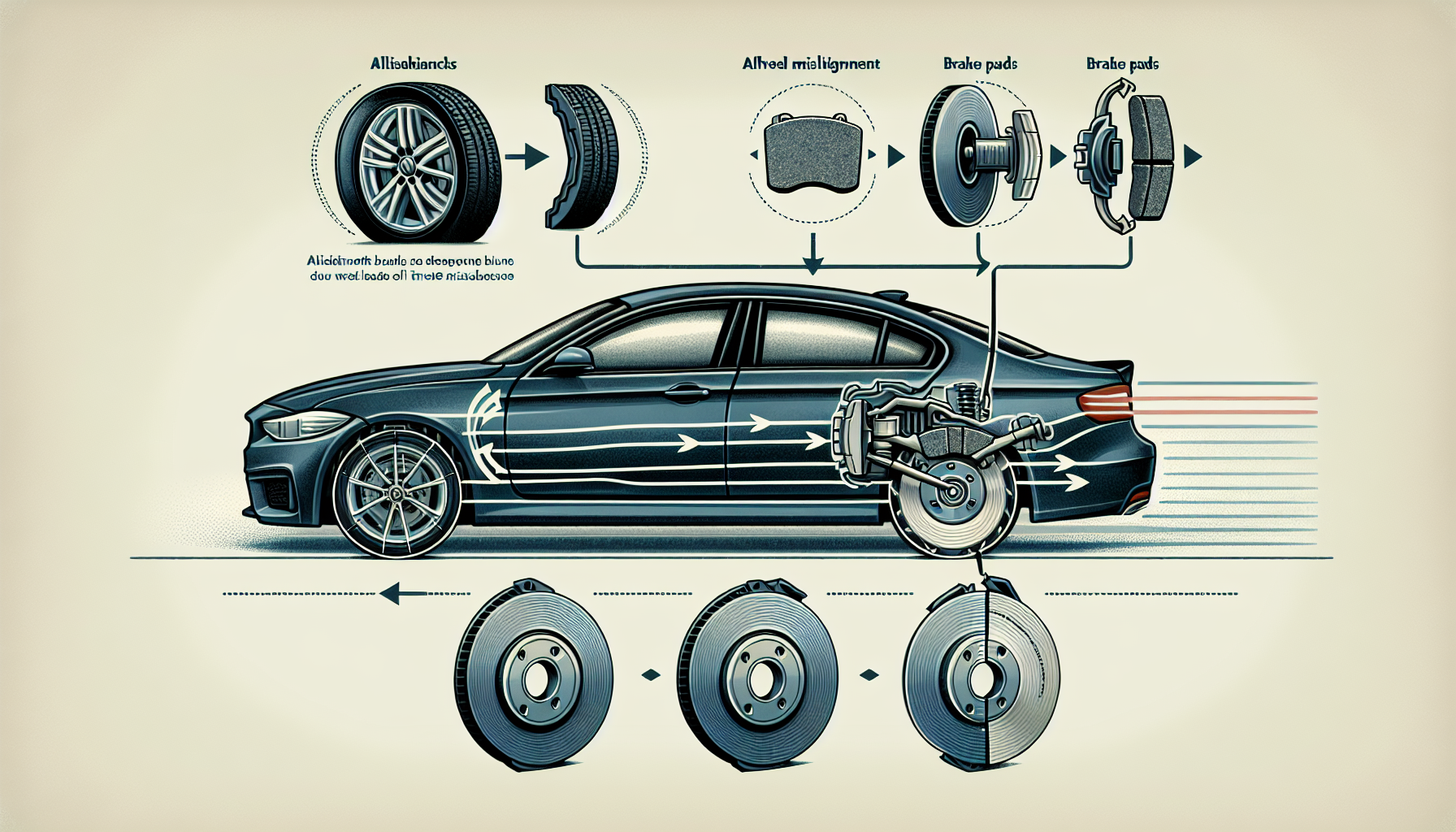Have you ever experienced a strange sensation when applying your brakes, as if your car is pulling to one side? It may be easy to dismiss it as just a quirk of your vehicle, but did you know that wheel alignment issues could be the culprit behind this uneven braking? That’s right, misaligned wheels can have a direct impact on how your brakes perform, leading to an uneven distribution of braking force. In this article, we’ll explore the connection between wheel alignment and braking, helping you understand why it’s crucial to address any alignment issues to ensure a smooth and safe driving experience.

Can wheel alignment issues cause uneven braking?
Yes, wheel alignment issues can indeed cause uneven braking. When the wheels of your vehicle are not properly aligned, it can affect the way your brakes perform, leading to unevenness in the braking system. In order to understand why this happens, it is important to have a clear understanding of what wheel alignment and braking are, as well as the common issues associated with braking and the signs of uneven braking.
What is wheel alignment?
Wheel alignment refers to the process of adjusting the angles of the wheels so that they are parallel to each other and perpendicular to the ground. Proper wheel alignment is crucial for the optimal performance of your vehicle. It ensures that your tires make even contact with the road surface, which not only improves handling and maneuverability but also reduces tire wear and allows for smooth driving.
What is braking?
Braking is a vital aspect of vehicle control and safety. It refers to the ability of the car to slow down or stop when necessary. When you engage the brakes, a series of actions occur to help slow down or stop your vehicle. This includes the application of hydraulic pressure to the brake pads or shoes, which then create friction against the brake rotors or drums. The friction generated ultimately brings your vehicle to a halt.
Common braking issues
There are several common braking issues that can occur in any vehicle. These issues can range from minor inconveniences to potentially dangerous situations if left unaddressed. Some of the common braking issues include squeaking or grinding noises, vibrations, a soft brake pedal, or a pulling sensation when braking. These problems can arise due to a variety of factors, such as worn brake pads, damaged rotors, or fluid leaks in the braking system.
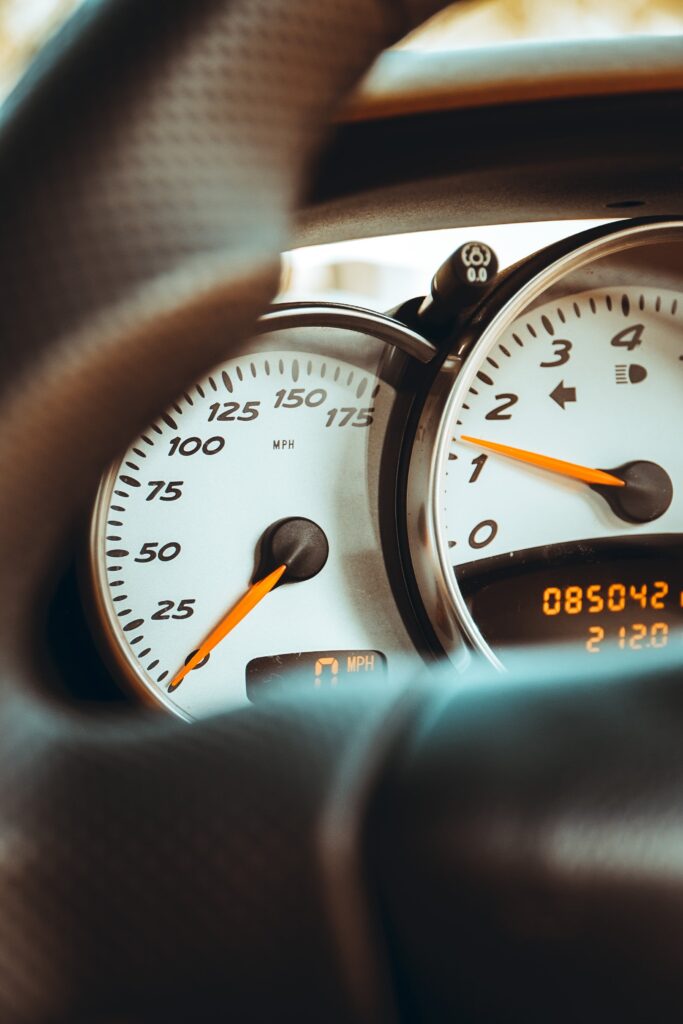
Signs of uneven braking
Uneven braking can be identified through various signs exhibited by your vehicle. One of the common signs is a vibration or pulsation felt in the steering wheel when you apply the brakes. This can indicate that the brake rotors are not evenly worn or that they have become warped. Another sign is the vehicle pulling to one side when braking. This suggests that the brake pads may not be making even contact with the rotors on both sides. Additionally, uneven wear on the brake pads or unusual tire wear can also be indications of uneven braking.
Causes of uneven braking
Uneven braking can be caused by a few different factors. One of the main culprits is wheel misalignment. When the wheels are not properly aligned, it can lead to uneven wear on the brake pads or uneven distribution of braking force. Other causes include worn or damaged brake components, such as rotors, calipers, or brake hoses. It can also be due to contamination of the brake fluid or air in the brake lines.
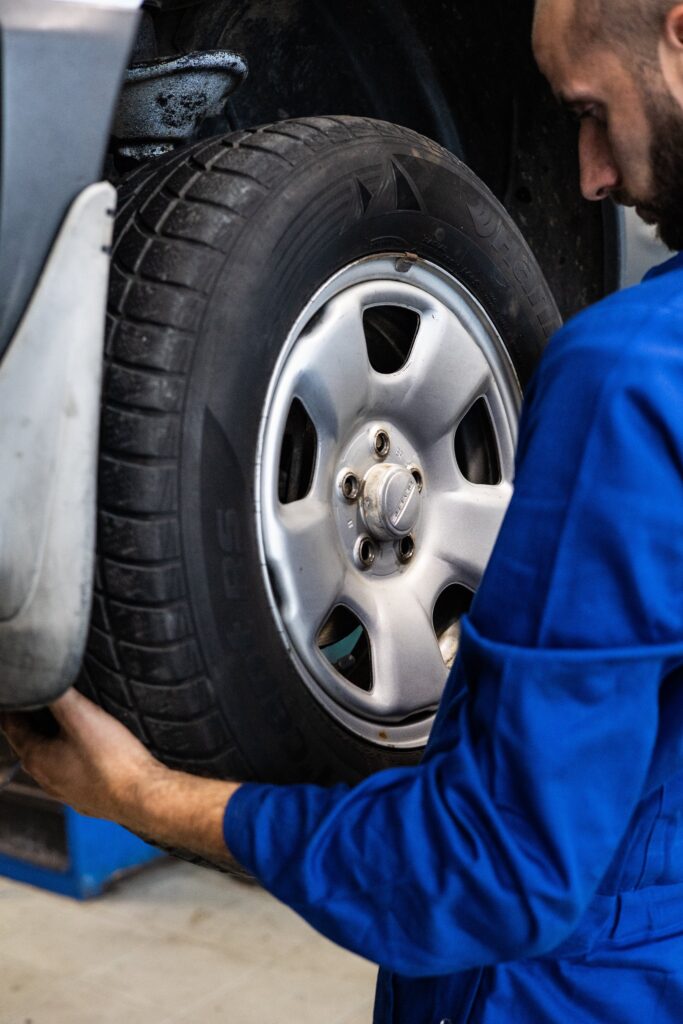
Impact of wheel alignment on braking
Proper wheel alignment plays a crucial role in the overall performance and safety of a vehicle’s braking system. If the wheels are not aligned correctly, it can result in uneven brake pad wear. This means that one pad may wear out much quicker than the other, leading to uneven braking performance. Additionally, misaligned wheels can cause the brake calipers to exert unequal pressure on the rotors, resulting in uneven braking force and potentially compromising your ability to stop the vehicle efficiently.
How wheel alignment issues affect braking
When your vehicle’s wheels are misaligned, it can have a direct impact on the effectiveness and consistency of your braking system. Misaligned wheels can cause one brake pad to have more contact with the rotor than the other. This uneven contact can result in uneven braking force, potentially causing the vehicle to pull to one side when you apply the brakes. Moreover, misalignment can create excessive heat and wear on certain brake components, leading to premature brake failure.
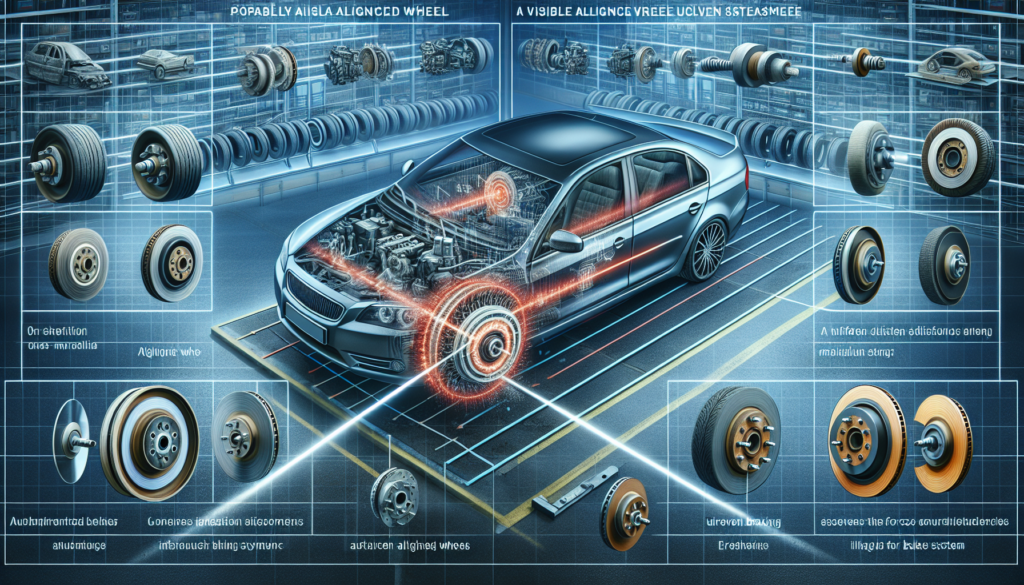
Prevention and maintenance
To prevent uneven braking caused by wheel alignment issues, regular maintenance is key. It is recommended to have your vehicle’s wheel alignment checked and adjusted if necessary, as part of your routine maintenance schedule. Additionally, it is important to address any signs of uneven braking promptly, as they may indicate a need for alignment or other brake-related repairs. Regularly inspecting and replacing worn brake components, as well as properly maintaining the brake fluid, can also help prevent uneven braking issues.
Importance of regular wheel alignment
Regular wheel alignment is crucial for the overall safety and performance of your vehicle. Properly aligned wheels ensure that your tires wear evenly, which not only extends their lifespan but also provides improved handling and fuel efficiency. Additionally, correct wheel alignment ensures that your vehicle’s braking system operates optimally, allowing for consistent and reliable stopping ability. By maintaining proper wheel alignment, you can reduce the risk of uneven braking and related issues, ensuring a safer driving experience.
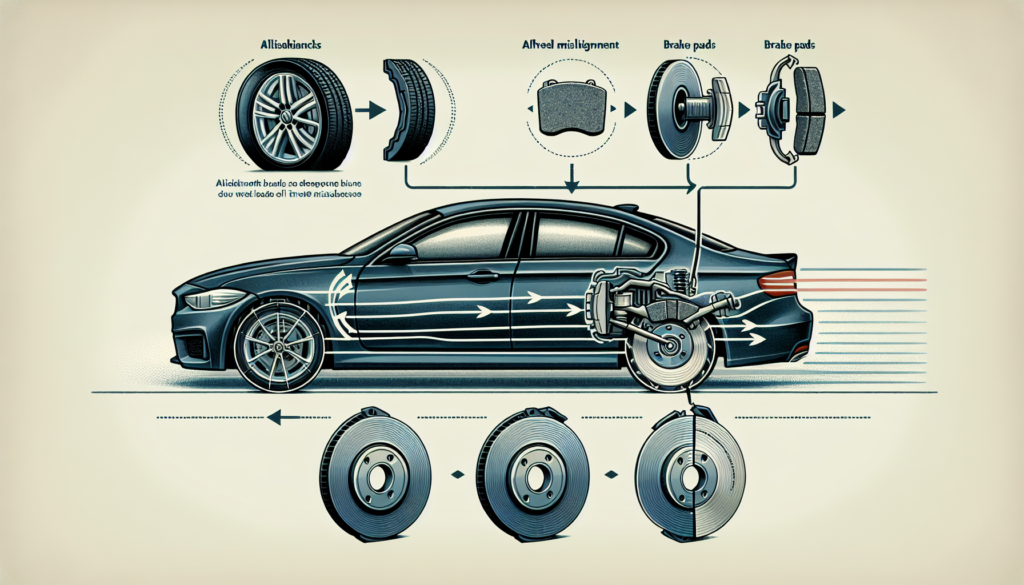
Conclusion
In conclusion, wheel alignment issues can indeed cause uneven braking in a vehicle. When the wheels are not properly aligned, it can result in uneven wear on the brake pads, unequal distribution of braking force, and potential compromises to your ability to stop the vehicle efficiently. Regular maintenance, including wheel alignment checks, is essential in preventing and addressing any potential issues with your vehicle’s brakes. By prioritizing wheel alignment and promptly addressing any signs of uneven braking, you can ensure a safer and more reliable driving experience.

